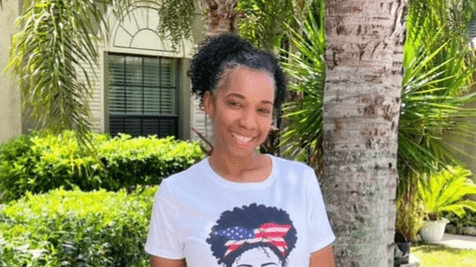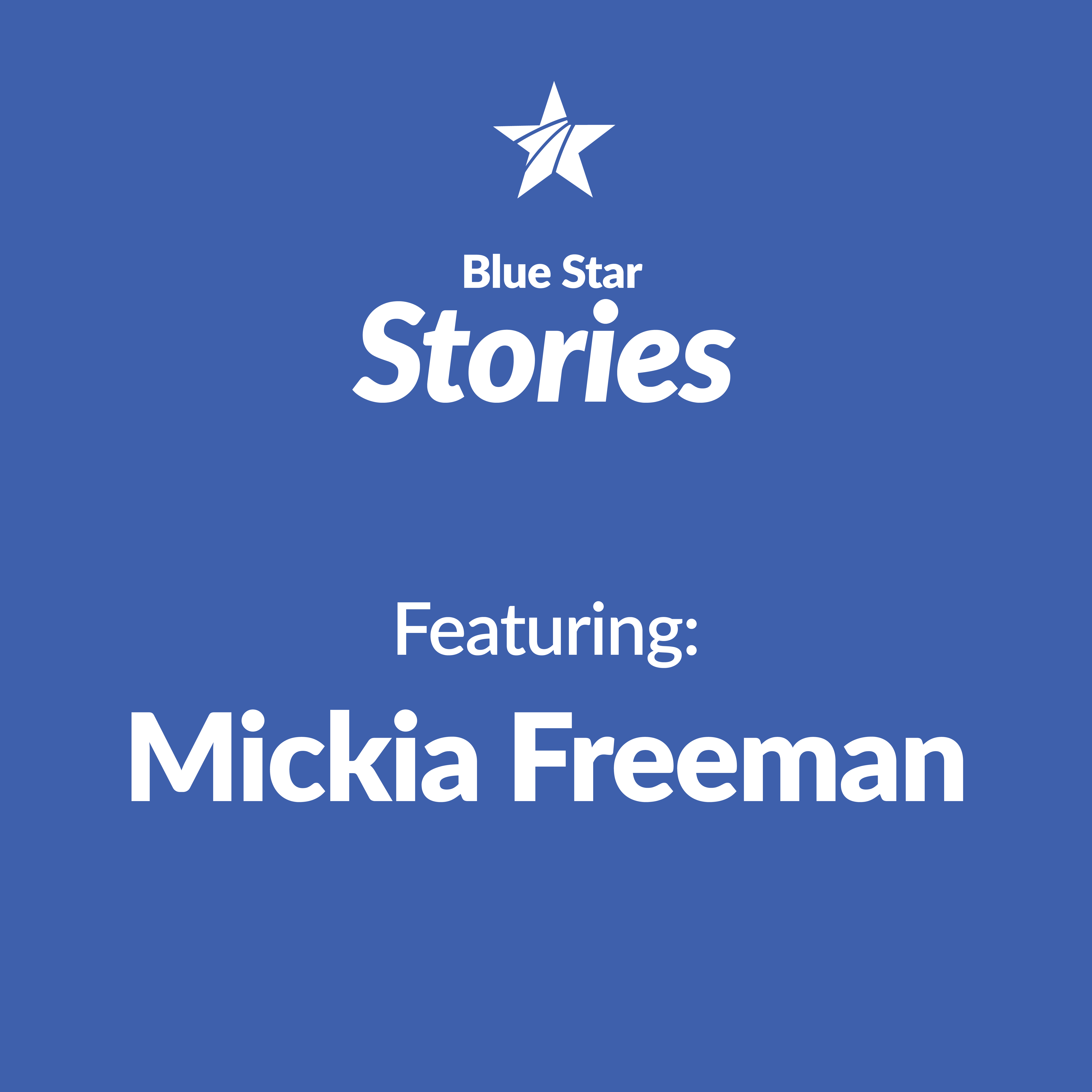Published: December 2, 2022

Military moms hold a lot of influence, and for one of Blue Star Families’ newest recruits, they’re the reason she still stands.

Mickia Freeman joins the 2022-2023 class of DEPLOY (Diversify and Expand the Pipeline Of Leaders Of Your Military Community) Fellows, serving the Tampa Chapter. She credits her mother and the countless military spouses she’s encountered throughout the years for staying steadfast on her military journey.
“There’s not a specific person who inspires me in this space, it’s multiple people at different times in my journey,” Mickia explains. “When I was younger, it was my mother and the other military moms who became my village and who I watched and learned from. Later on, and even now, it’s the military spouses who have become friends or people who have given me support and advice and who could relate to me and help me navigate what it means to be a military spouse and mother while still carving out my own identity.”
Navigating Military Life
Growing up in a military environment comes with its own set of challenges. Military families move, on average, every 2-3 years, face increased odds of housing and food insecurity, and often feel disconnected from their communities.
Mickia’s father served in the armed forces for over 20 years. During that time, she encountered the difficult experiences of starting over, being away from family, and watching her mother parent alone due to deployments. As a military spouse, she found the journey to be similar, but the addition of health concerns brought additional challenges.
“I’m a military spouse whose husband served 20 years, a mother who at times was a married single parent due to deployments and training,” Mickia shares. “I'm a woman, a woman who was diagnosed with a serious health condition and was part of the EFMP (Exceptional Family Member Program).”
The EFMP was created in the early 1980s as a way to provide a network of support, resources, and care for dependents with special needs. The mandatory Department of Defense program is intended to help military families navigate care; however, a recent RAND survey found discrepancies and inconsistencies with the program.
Still, Mickia didn’t allow the added adversity to weaken her resolve. “I raised children in the military and carved out a career and maintained a marriage,” Mickia says. “I’m excited to continue to learn and grow, and maybe even inspire more people to get involved and join me in the Tampa Chapter.”
Bringing Inclusion Front and Center
With her service member retired, Mickia felt her connection to the military community wane. Blue Star Families offered a way for her to build it back up. Likewise, the organization gave her the opportunity to impact other military families on their journeys.
“After reflecting on what I would have wanted or needed to make my experience better as a military spouse, I felt like I had some ideas on ways to make that happen with this fellowship,” Mickia shares, going on to reveal the uniqueness she sees in Blue Star Families’ Campaign for Inclusion. “I have yet to come across a program that was not only vocal about the need to focus on diversity and inclusion but also developed an intentional plan to implement it at the community and national level.”
The Campaign for Inclusion works to address the inequities faced by military families of color in the areas where they live and work. According to the groundbreaking study, The Diverse Experiences of Military and Veteran Families of Color, 46% of active-duty family respondents of color report difficulty developing a sense of belonging to their local civilian community due to their/their family’s race/ethnicity.
“The military itself is diverse,” Mickia notes. “Most often, families move to duty stations where they don’t have any natural family support; so having each person see someone who looks like themselves in military spaces provides a sense of belonging and community, and that’s important. I’m focused on improving the diversity in the Tampa Chapter so all families feel included. Tampa is such a diverse city, and I would love the Tampa Chapter of Blue Star families to reflect all the races and ethnicities so that it mirrors Tampa, and those families feel seen and supported.”
The newest Campaign for Inclusion research findings are set to release in early 2023. In the meantime, follow Mickia’s work in the Tampa Chapter here.
Posted In: DEPLOY Fellow
